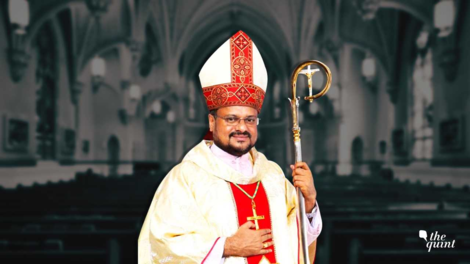Your podcast discovery platform
Curious minds select the most fascinating podcasts from around the world. Discover hand-piqd audio recommendations on your favorite topics.

piqer for: Climate and Environment Globalization and politics
Raksha Kumar is a multimedia journalist focusing on human rights, politics and social injustices. Since 2011, she has reported for The New York Times, BBC, Guardian, TIME, South China Morning Post, Foreign Policy, Scroll.in and The Hindu.
In March 2018, she was awarded the National Foundation for India Media Award for her reportage on land rights in India. In 2017, she was shortlisted for Kurt Schork Memorial Awards in International Journalism. For her work on land conflicts in India, she was awarded the Chameli Devi Award for Outstanding Media Personality in 2016.
As a reporter, her focus areas are land and forest rights of the most vulnerable communities. However, since these issues cannot be looked at in isolation, Raksha found herself increasingly reporting on armed conflict around resource extraction in places like Chhattisgarh and Kashmir.
In 2015, she wrote, shot and directed a documentary film on Rationalists in Contemporary India. It was aired by India's public broadcaster, Doordarshan. The film has been screened in 29 locations across the country until now.
The same year, Raksha was selected as a Chevening Fellow by the University of Westminster to research on Hindu Right in the UK. This helped Raksha build on her post graduate dissertation which was on Hindu Fundamentalists in India.
With a Fulbright Scholarship for Leadership Development, she went to the Columbia University in New York City to pursue a Masters in Science. As a student, she was offered the Scripps Howard Fellowship to report from Israel and the West Bank. Since 2011, Raksha has reported from 11 countries across the world.
Raksha worked as an editor at NDTV, leading English news channel in India. She was the editorial head of a two-hour prime time news show, where she lead a team of about 20 junior journalists.
A graduate of Lady Shri Ram College in New Delhi, Raksha was a dedicated student and a passionate public speaker.
Why The Catholic Church Is Its Own Worst Enemy In India Today
A nun from the southern state of Kerala alleged that she was repeatedly raped by the Bishop over many years. Her allegations hit the media a few weeks before India's Me Too movement was gaining strength on social media.
Most congregations of nuns report directly to the Pope. Missionaries of Jesus, however, is what is called a “Diocesan Congregation”, one that reports to the local bishop.Therefore, the nun's complaint was against her own boss.
The podcast talks about how the rigid systems of the Catholic Church in India makes it tougher for it to break the shackles of patriarchal norms. After five nuns came out in support of the complainant, the Bishop temporarily handed over the administration of the Church.
For years, India’s Catholic liberals have vented their disgruntlement — in private, at conferences within the community and occasionally in public — regarding misogyny in the Church, the position taken on homosexuality and abortion by bumbling Church spokespersons on TV, financial corruption and more.
The hope from this rather unfortunate incident is that the reformists within the Catholics will be better heard.
